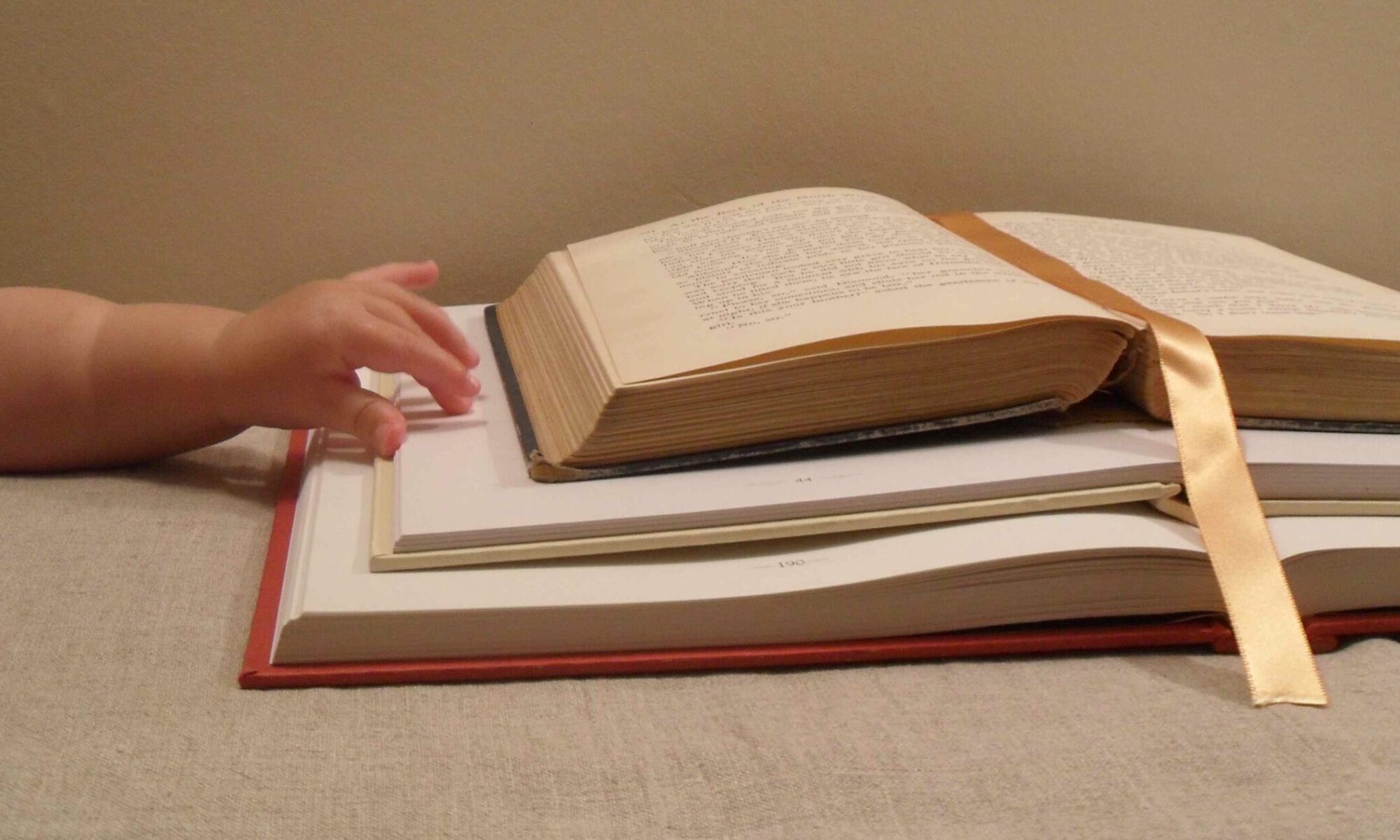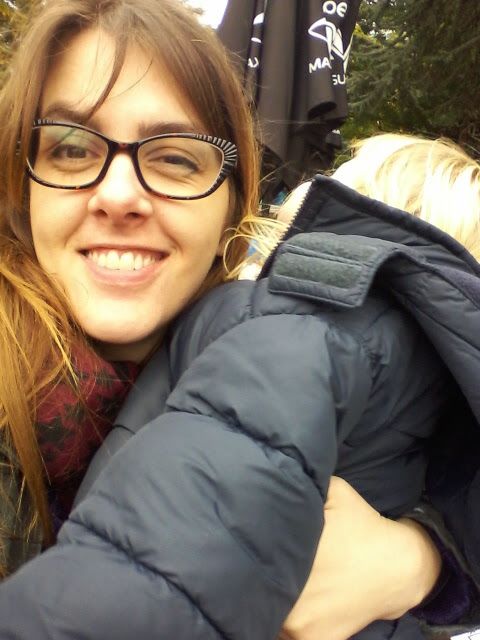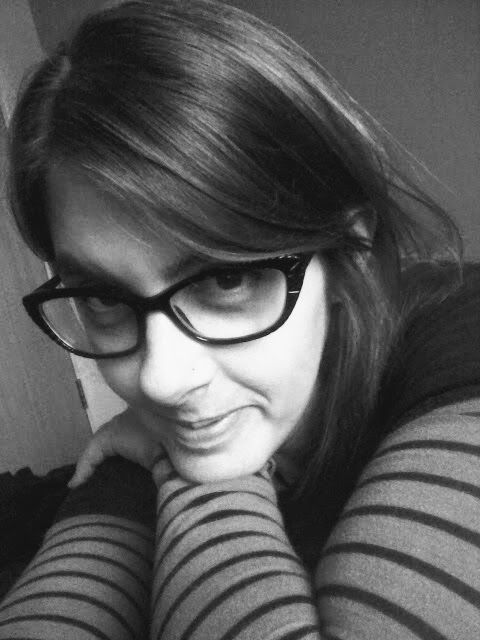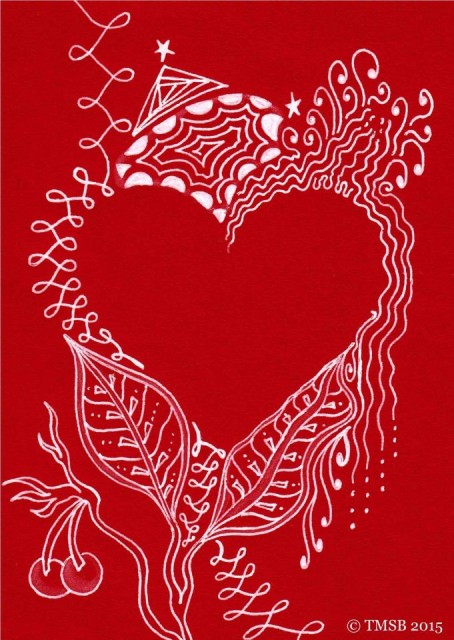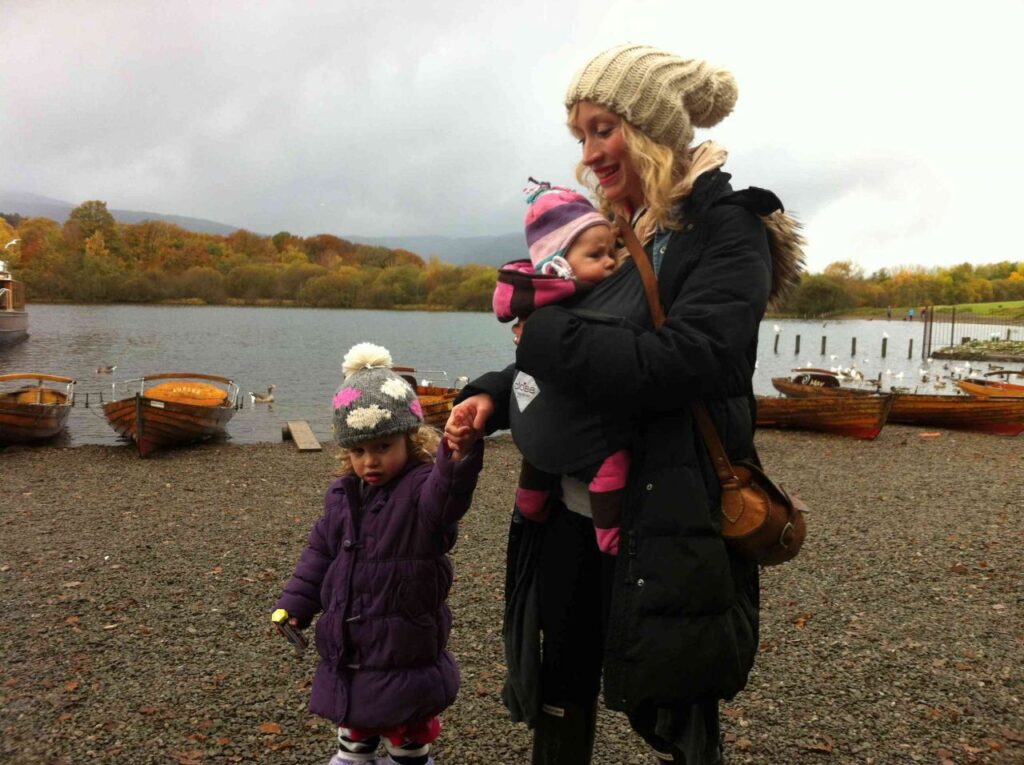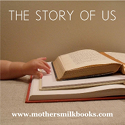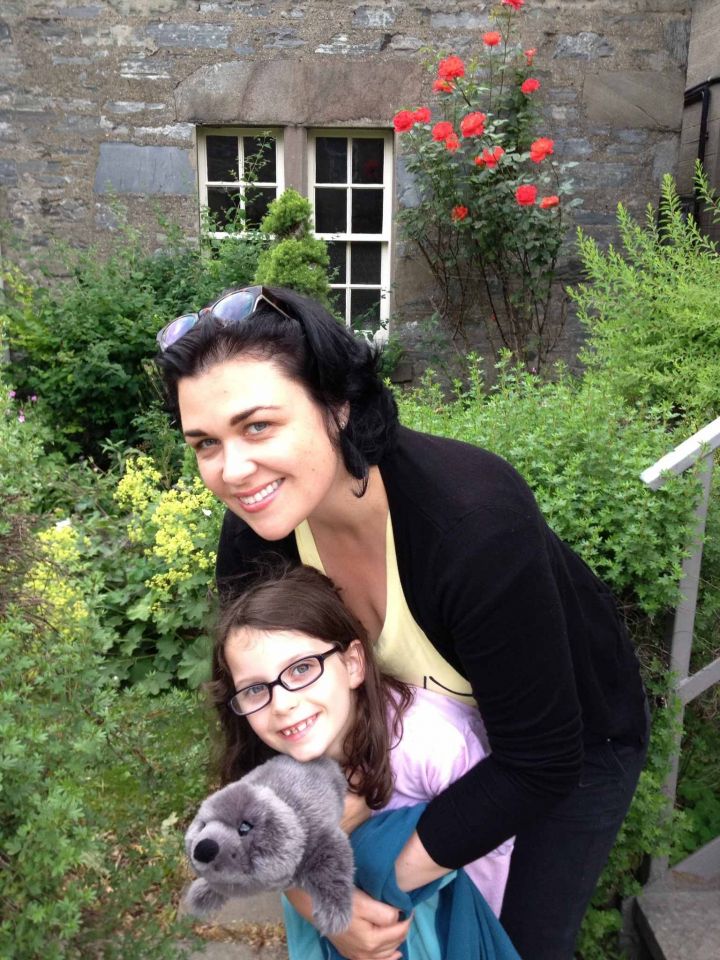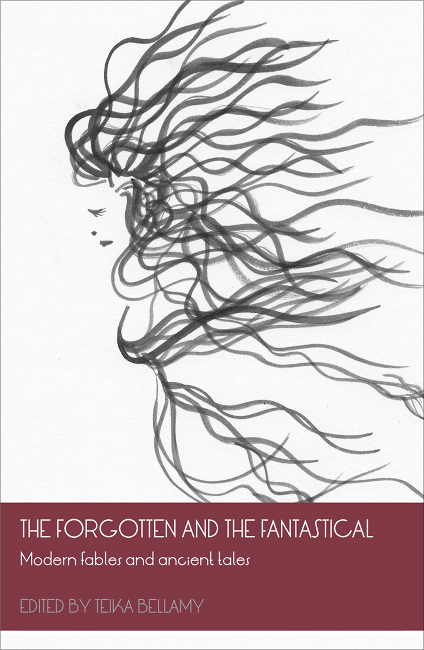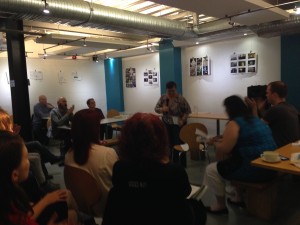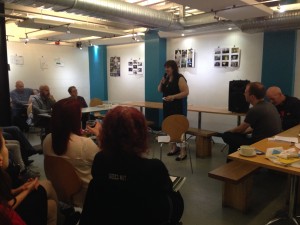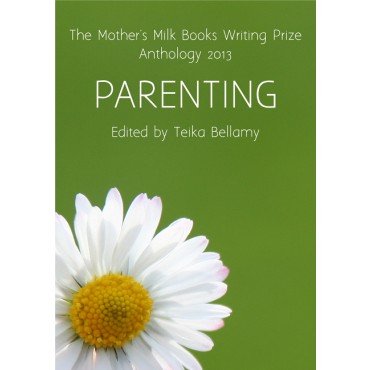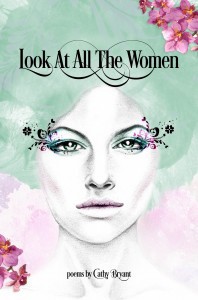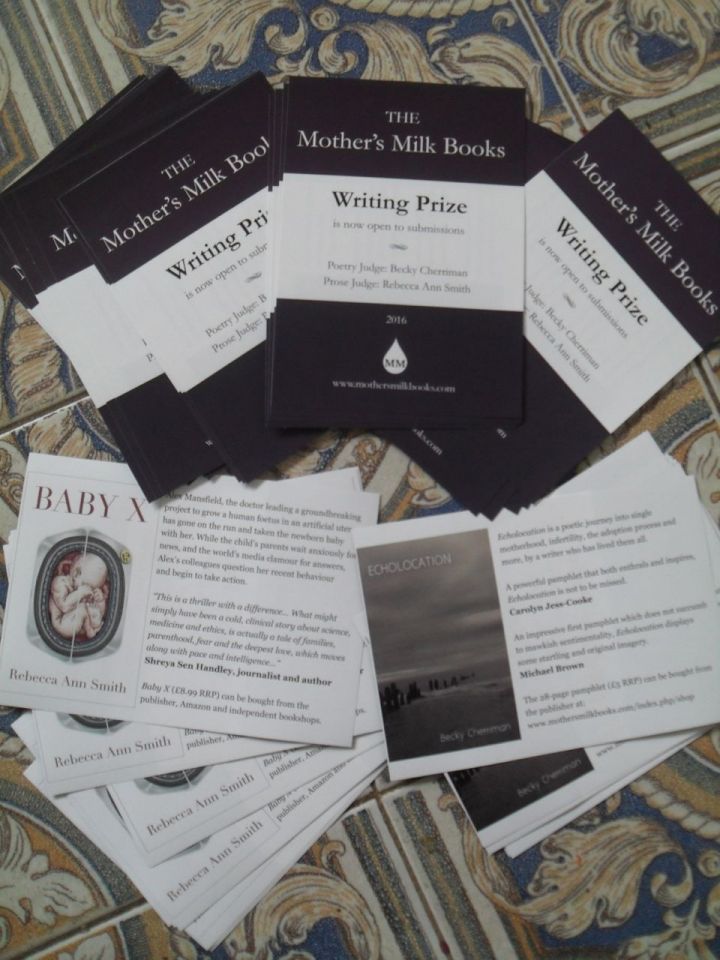
I am very happy indeed to be able to share the results of our 2016 Writing Prize. A huge thank you to all those who entered and made this competition a real pleasure to oversee. And many thanks too, to the judges Becky Cherriman and Rebecca Ann Smith for their hard work in reading, sorting and making final decisions.
Please note: keen-eyed readers will have noticed that in the competition guidelines there was no mention of publication of an anthology of the winning pieces. This is for various reasons, the main reason being overwhelm! My waiting list for books-to-publish is long and the time I have available to work, short. However, the winning poem and prose piece are published below, and the runners-up will be published in the next blog post. I do hope that all the poems and prose pieces entered in the competition find good publishing homes because I can honestly say that the standard of writing was exceptionally high. And as ever, I have discovered lots more excellent writers who I would very much like to hear more from.
Poetry Category (Adult)
Winner: ‘Anniversary Number Six’ by Sophie Kirtley.
Runners-Up: ‘Evening Falls’ by Michelle Bonczek Evory and ‘Prenatal Ski’ by Lauren Pope.
Commendeds: ‘Knowledge’ by Michelle Bonczek Evory, ‘Songs for Virgil’ by Cato Pedder, ‘After’ by Gail Aldwin, ‘Easy Knits for Mothers’ by Alison Jones, ‘Rewinding Childhood’ by Maria Stephenson, ‘Domestic Bliss’ by Kristina Adams.
Poetry Category (Children)
Winner: ‘How To Make A Crocodile’ by Lee Birkett.
Commendeds: ‘Me and Grandad’ by Flossie Clarke, ‘Flying’ by Rebecca Cotti, ‘Ode to Motherhood’ by Meghana Alurku.
*
Judge, Becky Cherriman’s Report
Much of my working life centres around encouraging people to experiment and to write in different ways and in forms and to try not to judge that writing while it is in genesis.To judge a poetry competition feels in some ways contrary to that inclusiveness and that was why I tried to come to the task without a particular agenda. Reading however, it soon became clear to me that I was looking for poems that showed a high degree of craft and engaged my emotions and/or intellect. I was looking for poems that spoke to me.
Of course, it is impossible to be objective. A technically poor poem can mean the world to someone whereas a highly crafted masterpiece might leave that same person cold. Several of the poems submitted to this competition were very good. Yet, after all the reading and analysis and dismissing some poems for containing clichés or not thinking hard enough about form, I decided on poems whose voices I found most compelling. Below are the chosen poems and my reasons for selecting them.
Winning Poem: ‘Anniversary Number Six’ – The poet chooses the sestina with its six line stanzas as a form for this gentle lyrical poem and aptly so as its theme is a six-year-old marriage. Radiating from the central symbol of the wedding ring, the poem contains some gorgeous images. The six end words of the lines acquire new layers of meanings as the poem progresses and poetic devices such as alliteration and assonance add to the music of the poem. Yet they are never used clumsily. I have chosen this poem as winner because it is emotive and accomplished in its craft, because I saw something new in its apparent simplicity every time I looked at it. I’ve chosen it because I felt I was hand-in-hand with its narrator during a very precious moment.
Runner-Up: ‘Evening Falls’ – What does family life look like from the outside? What does it look like from the inside and how can we reorientate to see the full picture? These questions are asked in this uncomfortable poem about the cruelty and caring that can manifest in parenthood. The language here is visceral; we discover how “love’s instinctual attachment” “will form scar tissue over crack and fissure,/ stretch skin to keep intact.” I like poems I can learn from, poems that help me see part of life differently. I felt for all the poem’s characters as I flew into its hard reflection. Unsettling as its theme was, the poet’s touch was acutely human and I was grateful that s/he refused to offer any easy answers.
Runner-Up: In ‘Prenatal Ski’ the connection between mother and the acrobat foetus grows stronger as the poem and the bump develop until skiing together they become ‘we’ – partners in a rebellion against the arc of the midwife’s raised eyebrow. I loved how the form’s short lines slalomed down the page, reflecting the poem’s content. What a treat to share in this subversive moment.
Winning Children’s Poem: ‘How To Make A Crocodile’ – a recipe poem for a crocodile made up of similes, many of them as frightening as the crocodile itself. The line “strong whipping tail as bulky as a puffer-fish blown up” stood out for me and I loved how it had a good beginning and clear end.
Anniversary Number Six
for Andrew
Now our baby is one month old
my hands are almost themselves again.
It is cold though, the unworn ring,
when I soap and squeeze my finger
in, still slightly swollen. Outside the wood
is stirring: aconites, catkins, primroses glow
golden in the low light. The sun’s glow
is shy in April. I forget the sun is older
than even the Earth, as that soft light tickles the wood
awake. I turn from the window (the baby has woken again)
leaving the misted shape of my fingers
on the cold glass. I kiss the ring
you gave me. It is warm now, your ring,
my ring, our six-year-warm-ring that glows
a homely girdle on my puffed finger.
The back of my hand looks new to me, suddenly old –
I notice, now that I wear my ring again,
how lines have formed like whorls in wood.
In the evening you bring in logs from the wood.
I count the circles, reading the rings
that tell of a rainy Spring, a drought, then rain again.
Years turn like that. We set them alight, aglow
they burn and flames fade to embers, then old
grey ashes that flake to soft dust on our fingers.
Although asleep, the baby grips your finger,
strangely strong, like the sapling we planted in the wood
for her. One day she will be as old
as us. Today you wear her hand like a ring
and sing a lullaby you forgot you knew. You glow
molten with love; slow and sleepless again
the night becomes day becomes night again.
We have lost ourselves in this, entwined, our fingers
have forgotten whose are yours, whose are mine. That glow
could be the sun setting or rising or perhaps merely wood
slow-burning in the grate. At least the ring
keeps me straight, there’s no arguing with that old
gold. I kiss our ring again and walk with you in the wakening wood,
hand in hand, our fingers stealthily thickening with rings;
our rings glow too, warm in the cold; six years new, six years old.
SOPHIE KIRTLEY
*
How To Make a Crocodile
He needs:
A long, scaly, muddy green body like a mud-dripping tree caked in dirt
More teeth than a horse has hairs, which are as sharp as a murderer’s dagger and as white as the Caribbean sands
A strong, whipping tail as bulky as a puffer-fish blown up
Claws like a steak knife and white as a zebra’s stripes
A snout as deadly as a strike of lightning
A temper as hot as fire and raging as a soldier’s gun
He is a speedy, deadly, stealthy nightmare.
LEE BIRKETT (aged 8)
*
Prose Category
Winner: ‘Shush’ by Grace Fletcher-Hackwood.
Runners-Up: ‘A Thousand Shades’ by Rachel Rivett and ‘Snails’ by Alison Jones.
Commendeds: ‘Grit’ by Louise Goulding, ‘Inheritance’ by Ebba Brooks, ‘A Moment With You’ by Cathy Oliver.
Judge, Rebecca Ann Smith’s Report
Winning Prose Piece: For me, ‘Shush’ was the most confident and accomplished. The writer has a very natural style and is showing not telling throughout. The dialogue is deft and naturalistic. This sort of style looks simple but is actually very difficult to do well. ‘Shush’ is well structured with a clear beginning, middle and end. I love that it’s pro Libraries (which are more important now than ever!) and I loved the theme of hidden treasure which recurred throughout the narrative in different ways and with different meanings. Most of all, I loved the way the writer portrayed the struggles of parenting young children (and the economic realities too) with such a light touch and a strong sense of fun. The muddy kids playing pirates in the garden is truly joyful. I think it’s a story that a lot of parents will relate to.
Runner-Up: ‘A Thousand Shades’. Again, I think the writing in this piece is very strong, with the narrator showing rather than telling us her complicated feelings about her daughter’s burgeoning independence. I loved the narrator’s image of her daughter as brave and dynamic, and the clever way she showed her anxieties about her child’s safety – the tiny backpack, no sign of a coat. There’s a lot of wisdom in here about parenting too, and the reference to the classic book We’re Going on a Bear Hunt was beautiful and profound.
Runner-Up: ‘Snails’. I love the simple “everydayness” of this story, the joy of finding real magic in a moment of ordinary family life. The writing is strongly grounded in the present and in sensory experience – much like the experience of life with small children. Throughout this piece we feel close to the ground, the smell of herbs and cut grass. There are moments of shining prose in here too – I loved ‘the blue heart of a rain shower’.
Shush
When Kat came downstairs – fresh from the shower, curly hair still damp, dressed in her summer holiday uniform of t-shirt and leggings, because there wasn’t enough Peppa Pig in all the world to give her the time or energy for ironing at this time of year – she was bombarded with Maths.
‘Muuum! Can we go and see Finding Dory?’
£8 bus fare plus £18 tickets plus £2 of sweets from the pound shop beforehand to prevent a meltdown when I can’t afford the popcorn = £28.
‘We’ll watch it when it comes out on DVD, OK?’
‘Muuum, can we go to McDonalds today?’
£8 bus fare plus 2 x Happy Meals at £2.59 each plus maybe some fries for me = £14.37, or £6.37 plus two screaming fits if we walk there.
‘Maybe next week.’
‘Can we go to Disneyland, Mum?’
Disneyland plus minimum wage plus two kids = you must be joking.
‘Not any time soon, sweetheart.’
By this point in the holidays Kat was good at planning activities they could afford. Her budget for this morning was exactly one pound, and so the plan was:
Walk to library = free, and not too far. Thank God it’s not raining.
Use computer for an hour while the kids play or read = also free
A book each = free
An iced bun each from the bakery on the way home = 90p, plus maybe 5p to bribe each kid not to eat their buns until after lunch.
‘Those Pinterest mums have nothing on me,’ she said aloud, to herself, as she carried the breakfast plates to the sink and the kids ran to find their shoes.
An hour and fifteen minutes later they were all at the library, still within their budget and completely tantrum-free (although Kat had come close when she couldn’t remember her email password). Kat remained grateful that their local library wasn’t the kind of place where anyone would tell her children to shush; but as Finn and Petal’s game of hide-and-seek among the shelves became increasingly spirited, she decided it was time they moved on.
‘OK, kids. Choose a book each, and then we’ll have to go home.’
‘NO! I don’t want to go –’
‘After the bakery! We’ll go and get a cake first and then we’ll go home. And then we’ll… decide what to do for the rest of the afternoon.’ Kat rubbed her eyes as she stood at the librarian’s desk, holding a thriller she knew she’d never get around to reading, plus a large, jauntily-coloured hardback entitled ‘Twenty Great Summer Holiday Activities’.
‘You look like you need this,’ said the librarian, waving the activity book.
Kat grinned, wearily. ‘Actually I need a strong coffee, a massive piece of cake and an hour to myself. But this’ll do.’
‘Long day?’
‘Mmhmm.’ Kat looked up at the clock and sighed. ‘And it’s not even half-eleven.’ She took the book back from the librarian – just as Petal cannoned into her, arms outstretched, sending Kat and her books flying.
‘Sorry, Mum,’ said Petal, as Kat regained her balance. ‘I was just trying to hug you really really fast.’
‘That’s OK,’ said Kat. ‘Hugs can be hard to control… What’s this?’
As she picked up the larger book, it fell open and she discovered something inside: something purple and off-white, pressed between the pages like a grubby flower. It was a twenty-pound note.
Kat straightened up and held out the note to the librarian, who was busy scanning Finn and Petal’s books.
‘This was in the book…’
The librarian pursed her lips, shook her head quickly, and then, very quietly, she said ‘Shush…’
*
Finn and Petal had both borrowed books about pirates, and spent the walk home riotously crying ‘ARRRGH!’ and exhorting one another to walk the plank. Kat hardly noticed. She felt a little as though she was floating. Twenty quid! Twenty unexpected, unbudgeted-for pounds! It was the kind of money that could change your whole week, if you were careful.
Back at home, she sat the kids in the garden with their books and cartons of juice, chatted briefly over the fence to Abby-from-next-door about her GCSE results, then went in and stood at the kitchen counter, making sandwiches and calculating. They had enough food to last until payday. She checked – they had enough toilet paper and washing-up liquid, too.
‘Sod it,’ she said aloud, to herself. ‘Let’s blow the money.’
*
‘OK, kids, I’ve got a great idea,’ she said, re-emerging into the garden with a plate of sandwiches in each hand. ‘How about we go swimming, and then McDon… kids?’
The books lay abandoned on the concrete slabs near the front door; the twins were at the far end of the garden, each digging a hole with their bare hands.
‘Kids? Dinnertime? Then swimming? Yes?’
They turned their identical faces towards her, wearing identical expressions of frank disdain smudged with loamy soil and sun-cream.
‘Mum. I am being the Dread Pirate Petal.’
‘And I’m First Mate Finn.’
‘And there’s treasure buried under here and we’re going to find it. We don’t have time for McDonalds.’
‘And everyone knows pirates can’t swim.’
‘Really?’ said Kat. ‘That seems strange.’
‘Everyone knows that, Mum.’
‘Oh.’ Kat went back into the house, stood still and thought for a moment, then turned around, came back outside and called over the fence.
‘Abby! How d’you fancy earning £10 this afternoon?’
*
An hour and fifteen minutes later, Kat was in the town centre, in a café she’d often heard of but never previously managed to visit.
She was wearing her favourite summer dress. She had the thriller she’d borrowed from the library; she had a latte and a massive piece of chocolate cake, which she’d ordered without adding up what they would cost; and she had over an hour to herself.
Back home that evening, a nicely tanned Abbey opened Kat’s front door and assured her that the kids had given her no trouble at all.
‘Muuum!’ they roared as Kat stepped out into the garden.
‘Oh, good grief.’ Finn and Petal were so completely caked in dirt as to be indistinguishable from one another, or indeed from wild animals.
‘We’ve been digging for treasure all day!’
‘Looks like it! Come on in…’
‘But the treasure! We need to show you!’
‘OK, OK. First treasure, then a bath.’ She sat cross-legged on the grass and the twins emptied into her lap the things they had found.
A pale blue glass bead; a two-pence piece; a ball of gold foil; a particularly shiny pebble. All of which had, Kat realised, been conscientiously polished on the kids’ clothes to get the dirt off.
‘We found them for you,’ Petal explained, proudly.
‘We knew if we digged for treasure we’d find something nice for you.’
‘You say “dug”, not “digged”. It’s brilliant treasure. I love it.’ Kat dug in her handbag. ‘I’ve still got a few pounds left. Fish and chips for tea?’
Petal frowned. ‘Do pirates eat fish and chips?’
‘Course they do. Everybody knows that.’
‘What did you do this afternoon, Mum?’
‘Me? Well… I found some treasure too. But I like yours better.’
GRACE FLETCHER-HACKWOOD
